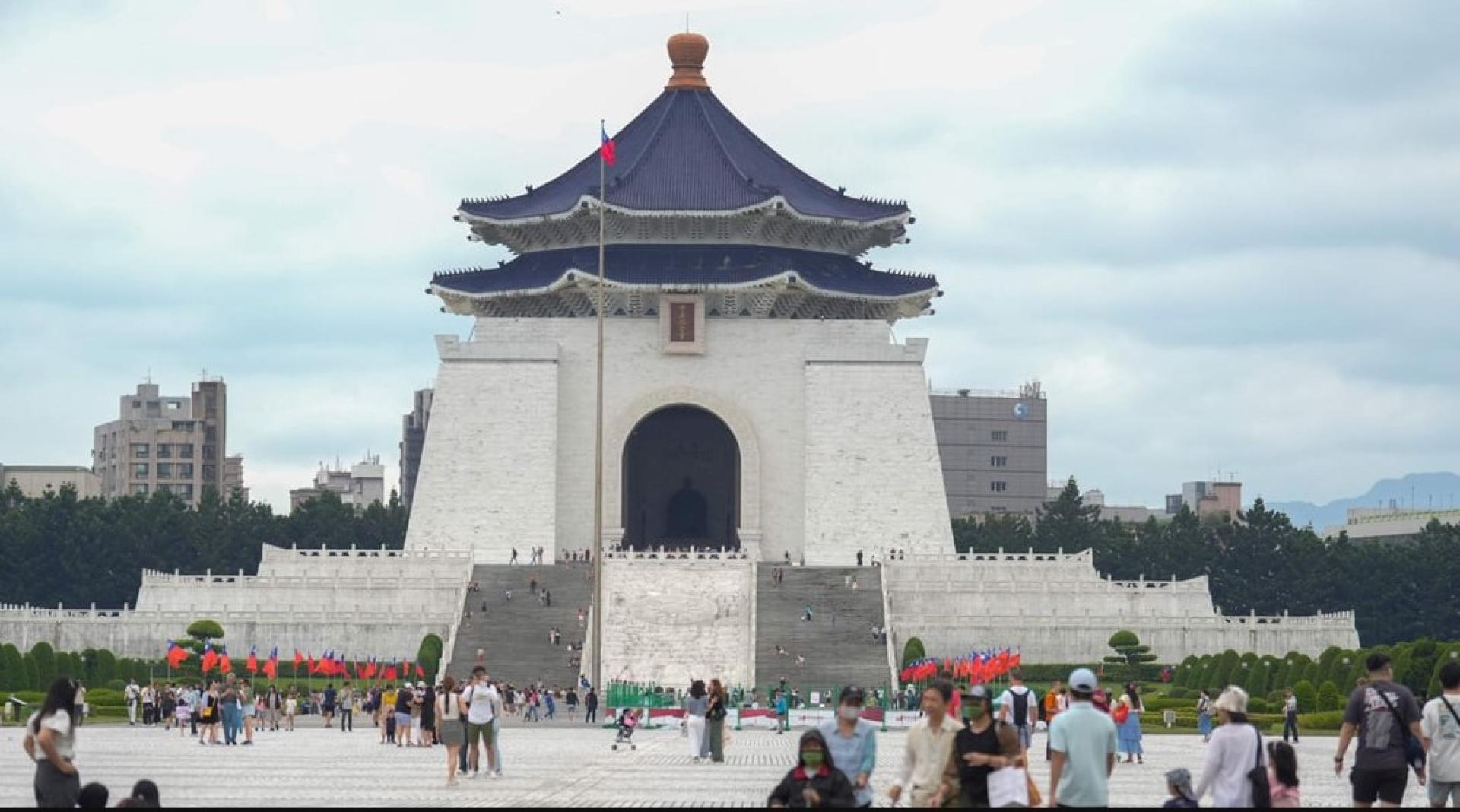(China, 26th) Wang Huning, chairman of the National Committee of the Chinese People's Political Consultative Conference (CPPCC), delivered remarks at the '80th Anniversary of Taiwan's Retrocession' conference held in Beijing on the 25th, proposing seven aspects that would be 'better' after 'peaceful unification.' The Mainland Affairs Council (MAC) responded that the so-called 'benefits after unification' are completely unattractive to the people of Taiwan.
Wang Huning said that after 'peaceful unification,' Taiwan's economic development, energy and resource security, infrastructure construction, security guarantees, foreign exchanges, people's welfare, and spiritual and cultural life 'will be better.'
According to a Central News Agency report, the Mainland Affairs Council (MAC) stated through a press release on the 25th that at the '80th Anniversary of Taiwan's Retrocession' conference, the Chinese Communist Party (CCP) put forward four main proposals for Taiwan, once again distorting historical documents, falsely claiming sovereignty over Taiwan, reiterating the 'one-China principle', the '1992 Consensus', 'anti-independence, anti-interference', and 'promoting integration and unification'—old refrains.
The MAC emphasized that the crux of cross-strait relations lies in institutional differences. The CCP's so-called 'benefits after unification' hold no appeal for the Taiwanese people. The CCP is unilaterally drawing up blueprints and offering benefits in an attempt to 'entice unification.' The essence of cross-strait relations is a struggle between systems—democracy and authoritarianism cannot be reconciled. The people of Taiwan have always insisted on a free and democratic way of life, and the experience of Hong Kong proves that 'one country, two systems' ultimately results in CCP authoritarian rule.
The MAC stated that the 'Republic of China' and the People's Republic of China do not belong to each other, and the CCP has never ruled Taiwan—these are undeniable objective facts. The CCP cites WWII historical documents to fabricate the fallacy that Taiwan belonged to the People's Republic of China after WWII, and spreads false historical narratives and unilateral political frameworks such as 'cross-strait one China' and 'international one China', with the aim of diminishing the status of the 'Republic of China' and manufacturing the claim that Taiwan is part of the People's Republic of China—an assertion the people of Taiwan will not accept.
The MAC pointed out that the 'one-China principle,' the '1992 Consensus,' and 'one country, two systems' all ultimately aim at eliminating the 'Republic of China' and annexing Taiwan. The CCP once again today put forward the policy of seeking 'peaceful unification' on the basis of the 'one-China principle' and the '1992 Consensus.' This is the CCP's 'three-in-one' Taiwan policy proposal, which leaves no room for the survival of the 'Republic of China.' Mainstream public opinion in Taiwan firmly opposes this.
The MAC called on the CCP to abandon its coercion and pressure towards Taiwan and engage in equal dialogue with Taiwan's democratically elected government. The government's cross-strait policy has always been consistent—not overbearing nor self-effacing—maintaining the status quo. The CCP should adjust its policy thinking towards Taiwan, abandon coercive and negative measures, and realistically face Taiwan's mainstream public opinion. Only then will it help promote the positive development of cross-strait relations. Peaceful coexistence and harmonious interactions are the ways that best serve the common interests of people on both sides of the strait.
Wang Huning said that after 'peaceful unification,' Taiwan's economic development, energy and resource security, infrastructure construction, security guarantees, foreign exchanges, people's welfare, and spiritual and cultural life 'will be better.'
According to a Central News Agency report, the Mainland Affairs Council (MAC) stated through a press release on the 25th that at the '80th Anniversary of Taiwan's Retrocession' conference, the Chinese Communist Party (CCP) put forward four main proposals for Taiwan, once again distorting historical documents, falsely claiming sovereignty over Taiwan, reiterating the 'one-China principle', the '1992 Consensus', 'anti-independence, anti-interference', and 'promoting integration and unification'—old refrains.
The MAC emphasized that the crux of cross-strait relations lies in institutional differences. The CCP's so-called 'benefits after unification' hold no appeal for the Taiwanese people. The CCP is unilaterally drawing up blueprints and offering benefits in an attempt to 'entice unification.' The essence of cross-strait relations is a struggle between systems—democracy and authoritarianism cannot be reconciled. The people of Taiwan have always insisted on a free and democratic way of life, and the experience of Hong Kong proves that 'one country, two systems' ultimately results in CCP authoritarian rule.
The MAC stated that the 'Republic of China' and the People's Republic of China do not belong to each other, and the CCP has never ruled Taiwan—these are undeniable objective facts. The CCP cites WWII historical documents to fabricate the fallacy that Taiwan belonged to the People's Republic of China after WWII, and spreads false historical narratives and unilateral political frameworks such as 'cross-strait one China' and 'international one China', with the aim of diminishing the status of the 'Republic of China' and manufacturing the claim that Taiwan is part of the People's Republic of China—an assertion the people of Taiwan will not accept.
The MAC pointed out that the 'one-China principle,' the '1992 Consensus,' and 'one country, two systems' all ultimately aim at eliminating the 'Republic of China' and annexing Taiwan. The CCP once again today put forward the policy of seeking 'peaceful unification' on the basis of the 'one-China principle' and the '1992 Consensus.' This is the CCP's 'three-in-one' Taiwan policy proposal, which leaves no room for the survival of the 'Republic of China.' Mainstream public opinion in Taiwan firmly opposes this.
The MAC called on the CCP to abandon its coercion and pressure towards Taiwan and engage in equal dialogue with Taiwan's democratically elected government. The government's cross-strait policy has always been consistent—not overbearing nor self-effacing—maintaining the status quo. The CCP should adjust its policy thinking towards Taiwan, abandon coercive and negative measures, and realistically face Taiwan's mainstream public opinion. Only then will it help promote the positive development of cross-strait relations. Peaceful coexistence and harmonious interactions are the ways that best serve the common interests of people on both sides of the strait.
